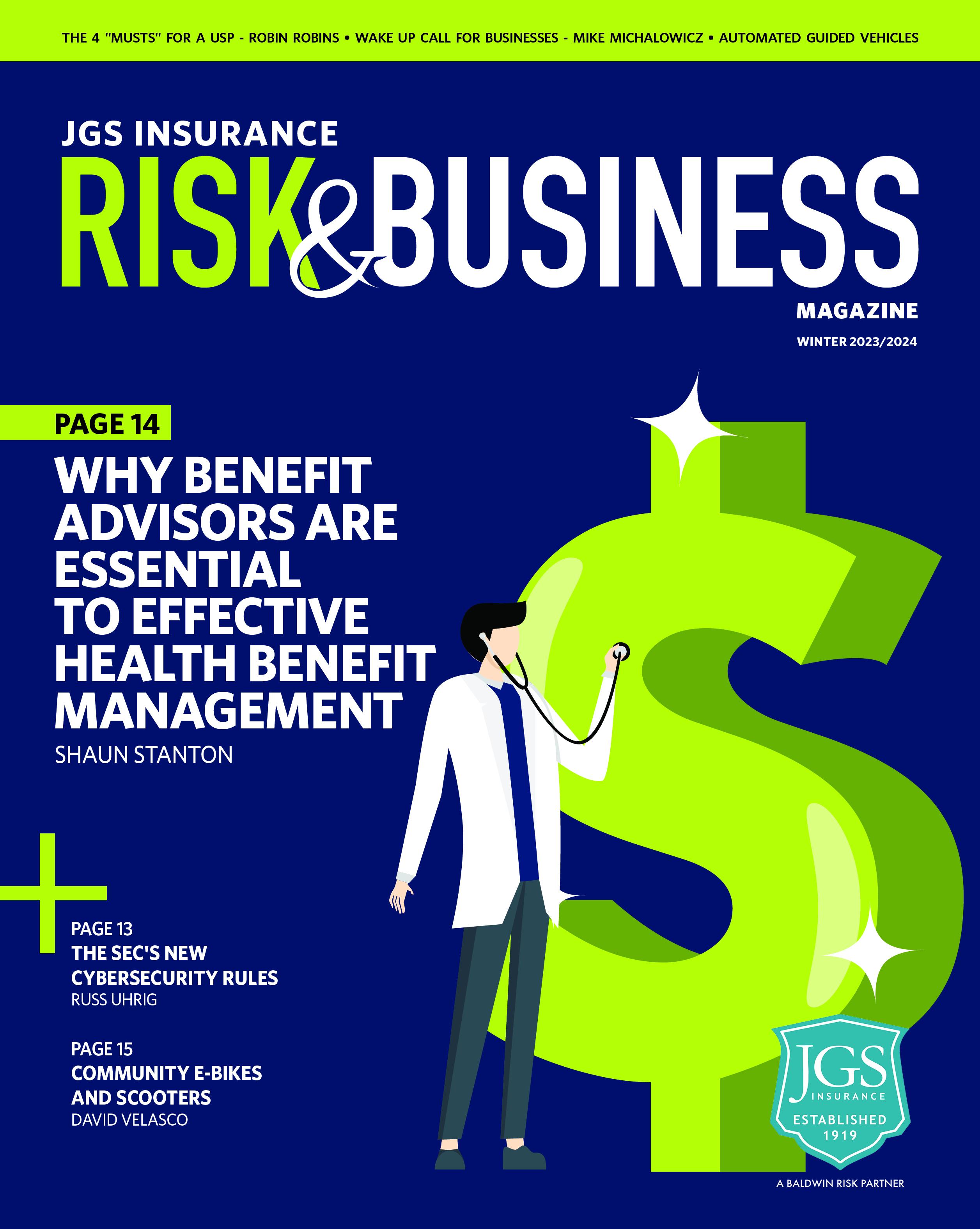By Ross Rutman, Assistant Vice President – Habitational
Is your Association properly funded? Most likely it is not! Funding Community Association operations is the most vital responsibility of every Association Board, yet so many Associations struggle with this. Proper oversight of day-to-day operations as well as long-term projects provides peace of mind to the owners and the Association that there will be adequate funding to run the community effectively. Businesses in New Jersey are required to respond to a data breach quickly
Board members have a fiduciary responsibility to make sure Association funds are properly allocated. A logical and realistic budget must be created using actual expenses and Reserve Study guidelines. A Reserve Study is a report (typically completed by a specialist or an engineer) that takes a deep dive into all aspects of an Association and its responsibilities, especially large-scale issues such as roof replacement, road paving or other large expenditures. A Board might see a domino effect if they fail to get a Reserve Study in place or if the study is not followed or updated as time goes on. Association property runs the risk of falling into disrepair, which may result from a Board’s bad management or lack of oversight on the community.
Typically, maintenance fees are allocated to paying everyday/reoccurring expenses or major repairs/replacements. There are basically two types of funds you will deal with in your Association. The day-to-day operations should be taken care of by your operating fund. The large-scale or long-term projects are handled by the reserve fund. Consider how this setup is similar to how you most likely use your household checking and savings accounts.
Operating fund: This fund is used to pay for the services that help carry out the day-to-day operations of the Association. These include but are not limited to the following:
- The most expensive contracted services such as landscaping, snow removal, property management and lifestyle services, pool expenses, general maintenance of common areas, security services, and of course insurance.
- Office expenses (paper, toner, postage, etc.)
- Accounting
- Utilities
- Legal Fees
The actual fees for one year will be a good indication of the next year’s proposed budget. Of course, it’s wise to keep expenses to a minimum and focus on necessary costs and actions.
Reserve fund: This fund is used for large-scale or long-term projects, such as replacement and/or repair of Association property. This money typically has strict criteria for how it can be used based on Association rules and regulations and bylaws. The best way to look at the reserve fund is to understand that it is used to pay for expenditures that do not occur on an annual basis. Please keep in mind there could be hundreds of such projects, and every Association is unique, however, some examples of reserve fund uses are:
- Roof replacement or painting of common buildings (i.e., condominiums, clubhouse)
- Work on amenities, such as the community pool
- New playground equipment
- Fence replacement for common areas
- Major landscaping projects
- Construction or major renovations for road and sidewalk projects
Remember to check your Governing Documents and Reserve Studies!
As a Board member you have several important roles. But if you start with proper funding, the other tasks will certainly come more easily. It is important to have money set aside for major expenditures. Although a special assessment may still be required, in many cases they can be avoided. Keep in mind all the potential issues that take place along the way; some are predictable while other issues like to catch us by surprise. If we fail to plan, we plan to fail, especially when dealing with Association funding!
Back to Blog

